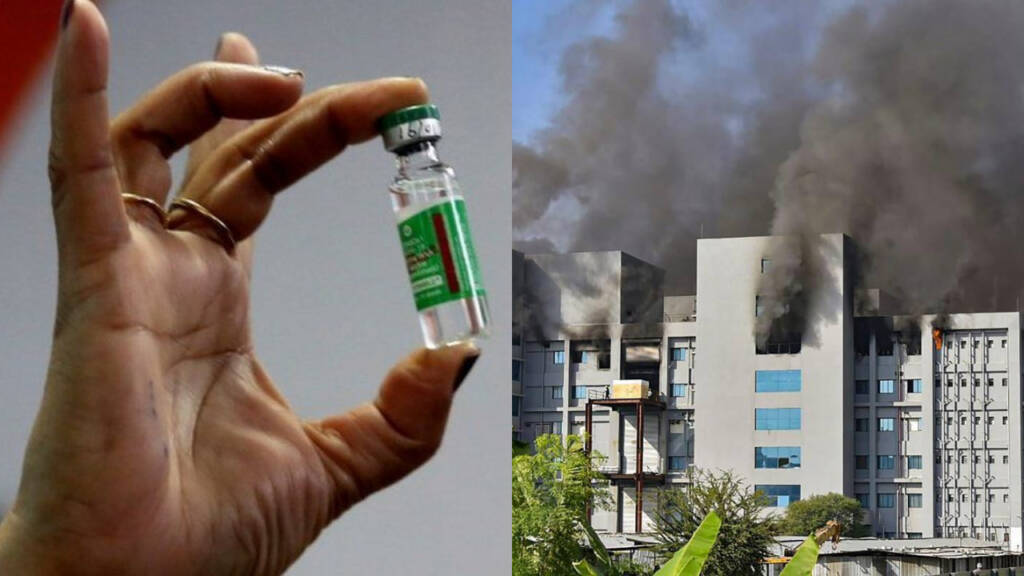As the Serum Institute of India’s semi-ready Manjari complex in Pune was gutted with fire on Thursday, jitters were felt not only in India but across the world. For the world’s largest and by far most reliable vaccine manufacturing facility to be engulfed in a raging fire spread across multiple floors was definitely an unusual and mysterious sight. What further aggravated fears were the timing of the fire – barely a week after SII began rolling out the all-important Covishield vaccine against COVID-19, which is being used as a primary weapon in India to combat the Chinese pandemic.
The massive blaze ravaged three to four floors of the upcoming facility in Manjari that was scheduled to become operational within a month or so. Adar Poonawala, CEO of Serum Institute of India said, “The fire has damaged machinery that was being installed for the RotaVirus and BCG Vaccine production here… No actual vaccines are being manufactured here. The extent of the damage is around Rs 1,000 crore.” The fire claimed five lives, furthering doubts of many that the fire was attempted sabotage of SII’s ability to manufacture anti-COVID vaccines.
How can a major fire occur at the world’s largest vaccine manufacturing facility at a time when the world needs it the most? Remember, the Serum Institute of India has a strong track record of regulatory and quality compliance and industrial safety. As such, a fire of this scale occurring within a week of Covishield being rolled out is bound to draw the attention of industry experts. To the surprise of nobody, they are calling a fire incident of this scale ‘unusual’.
For an instance, Davinder Gill, former CEO of Hilleman Laboratories and ex-Global Head of Biotherapeutics at Pfizer, said that unlike the pharmaceutical industry, especially bulk drug units that have chemical reactors involving risky chemical reactions that are prone to fire accidents, vaccine facilities have bioreactors to grow microorganisms and are generally safe from a fire standpoint.
Another top executive at a vaccine company was quoted by Moneycontrol as saying that he was surprised at the intensity of the fire. “This isn’t any old legacy plant; it is a newly built state-of-the-art manufacturing site making WHO prequalified vaccines – there will be a fire safety plan. Even the workers couldn’t escape from fire to safety is both sad and bizarre,” the executive added.
In times of crisis, vaccine manufacturing facilities across the world can be targets of highly sophisticated and devastating attacks aimed at sabotaging their ability to aid in any manner towards the alleviation of the crisis. Usually, such attacks are orchestrated by vested interest groups or anti-social elements – both of which are abundant in India. Additionally, vaccine storage facilities can also be targets of theft operations.
While it is being claimed that the Serum Institute of India fire was caused by an electrical fault, not many are convinced and are awaiting a detailed probe into the matter. The possibility of hostile external forces looking to derail India’s vaccination campaign being involved in the incident and impeding the country’s tremendous soft power projection around the world cannot be ruled out as well. In any case, vaccines like those of Moderna and Pfizer have begun showing incredible side-effects, making them an unviable option for many countries around the world in addition to their already astronomical storage prerequisites.
China, as we know, is infamous for producing vaccines which are more hazardous than the diseases they intend to provide immunity against. As such, India remains the only viable option for the world community to turn to avail vaccines at affordable rates. This makes the country and its vaccine ecosystem a high-value target for those who do not have the best interests of India at heart. The government and security agencies, as such, must ensure that vaccine manufacturing and storage facilities across the country are secured on a priority basis.
